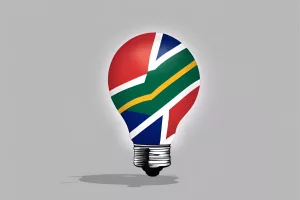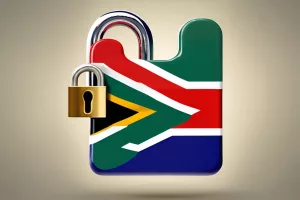This week in South Africa’s Parliament is filled with important discussions and reflections. They are honoring brave soldiers who lost their lives, while also examining the President’s plans for the country. Committees are diving into key issues like education, genderbased violence, and technology, all aimed at making life better for citizens. As they tackle these challenges, the spirit of democracy shines through, showing a commitment to justice and progress for all.
Minister Leon Schreiber has called for a digital transformation of the Department of Home Affairs in South Africa, citing the importance of national security against identity theft, visa fraud, and corruption. He highlighted the systemic crisis and outdated, paperdriven, manual systems that are vulnerable to manipulation and urged for a stateoftheart digital system to streamline operations and eradicate vulnerabilities. Schreiber proposed a digital platform for instantaneous auditing of the population register, streamlining visa approval, and eliminating queues and system downtime, which could invigorate tourism, draw skilled professionals, stimulate investment, and make Home Affairs more efficient.
Home Affairs Minister Leon Schreiber is leading a campaign to remove undocumented immigrants from Cape Town with the assistance of the Department of Home Affairs and law enforcement agencies. The campaign has made progress in locating and deporting individuals without legal documents, with recent operations leading to the apprehension of 34 individuals and the examination of 72 people. Minister Schreiber’s vision includes modernising the Department of Home Affairs to boost its digital prowess and strengthen national security, highlighting the balance between humanitarian and security concerns in contemporary urban societies.
The National Joint Operational and Intelligence Structure Coordination Centre (NCC) has launched in South Africa, representing the country’s unwavering dedication to national security. The centre is equipped with cuttingedge technology capable of realtime monitoring and response to unfolding scenarios and shares a dynamic and interconnected relationship with the Provincial Joint structures across all nine provinces. The NCC is not merely a technological hub but also a meeting ground for intellects, housing representatives from 39 government departments, agencies, stateowned corporations, and private sector stakeholders. It promises a safer environment for the country’s residents, and its longterm vision is to maintain its roundtheclock surveillance and coordination role.
A Comprehensive Review of Legislative Changes Adopted by South Africa’s National Council of Provinces
South Africa’s National Council of Provinces approved six important legislative acts on May 16, 2024, including the Electricity Regulation Amendment Bill to overhaul the electrical industry and the General Intelligence Laws Amendment Bill to enhance national security measures. Other approved legislation includes the National Water Resources Infrastructure Agency Bill, the Marine Pollution (Prevention of Pollution from Ships) Amendment Bill, the Transport Appeal Tribunal Amendment Bill, and the Plant Health (Phytosanitary) Bill. These legislative changes aim to enhance the agricultural sector, protect the marine environment, restructure the transportation system, and improve the water supply.
Citizens in East London gathered to witness and participate in the special committee on the General Intelligence Laws Amendment Bill. Many expressed support for reactivating the South African National Intelligence Academy to improve intelligence agents’ abilities, but also advocated for safeguards to protect their privacy. The public also raised concerns about financial mismanagement, protection for whistleblowers, and the need for routine meetings between the Joint Standing Committee on Intelligence and the country’s President. The legislative process continues with the assembly of a public participation report and careful consideration of all inputs.
South Africa’s MultiParty Charter (MPC) is a coalition of political entities determined to address the country’s increasing security issues. Led by ActionSA President Herman Mashaba, the MPC’s strategy revolves around police professionalization, criminal justice system improvement, addressing the rampant drug problem, and fighting corruption and state capture. Recent crime statistics underline the urgency of the MPC’s mission to create a safer, more secure nation, offering a glimmer of hope to a country plagued by escalating criminal activity, corruption, and drugrelated crimes.
South Africa’s Air Force is in crisis, with over half of its aircraft nonoperational due to a shortage of spare parts and budget limitations. Combat aircraft like the Gripen and Rooivalk attack helicopters are most affected, leaving the country’s airspace vulnerable in times of crisis. The crisis is blamed on mismanagement, neglect, and a lack of political will. A significant investment, efficiency improvements, and collaboration with international partners are needed to restore the air force’s strength and ensure the nation’s safety.
South Africa’s Air Force is in crisis, with a shocking 85% of its aircraft fleet currently nonoperational. Democratic Alliance member Kobus Marais exposed the issue, and Defense Minister Thandi Modise confirmed the statistics. The ANC government’s mismanagement and negligence are primarily responsible for the state of the fleet, leaving the nation vulnerable to security threats. Urgent action and resource allocation are needed to restore the South African Air Force’s former strength and protect the nation’s security.
Proper identification is a fundamental right that every citizen should have. It verifies an individual’s nationality and provides access to essential services such as healthcare, education, and voting. However, the Thabo Bester case demonstrates the severe consequences of not having identification and the need for accessible and efficient processes for obtaining it.
On May 19, 2023, Minister in the Presidency, Ms. Khumbudzo Ntshavheni, will present the budget policy statement for the State Security Agency (SSA) to the National Assembly of Parliament in Committee Room S12A. This event will showcase the progress made by the SSA in the previous financial year and outline its targets for the 2023/24 financial year.











